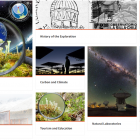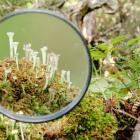“‘We Have Always Known’: On the Trails of People, Plants, and Humboldt”
While reading Baron von Humboldt’s 1807 Essay on the Geography of Plants, Paula Unger writes about modern science creating boundaries between the human and the nonhuman, and how Indigenous understandings transcend them.










